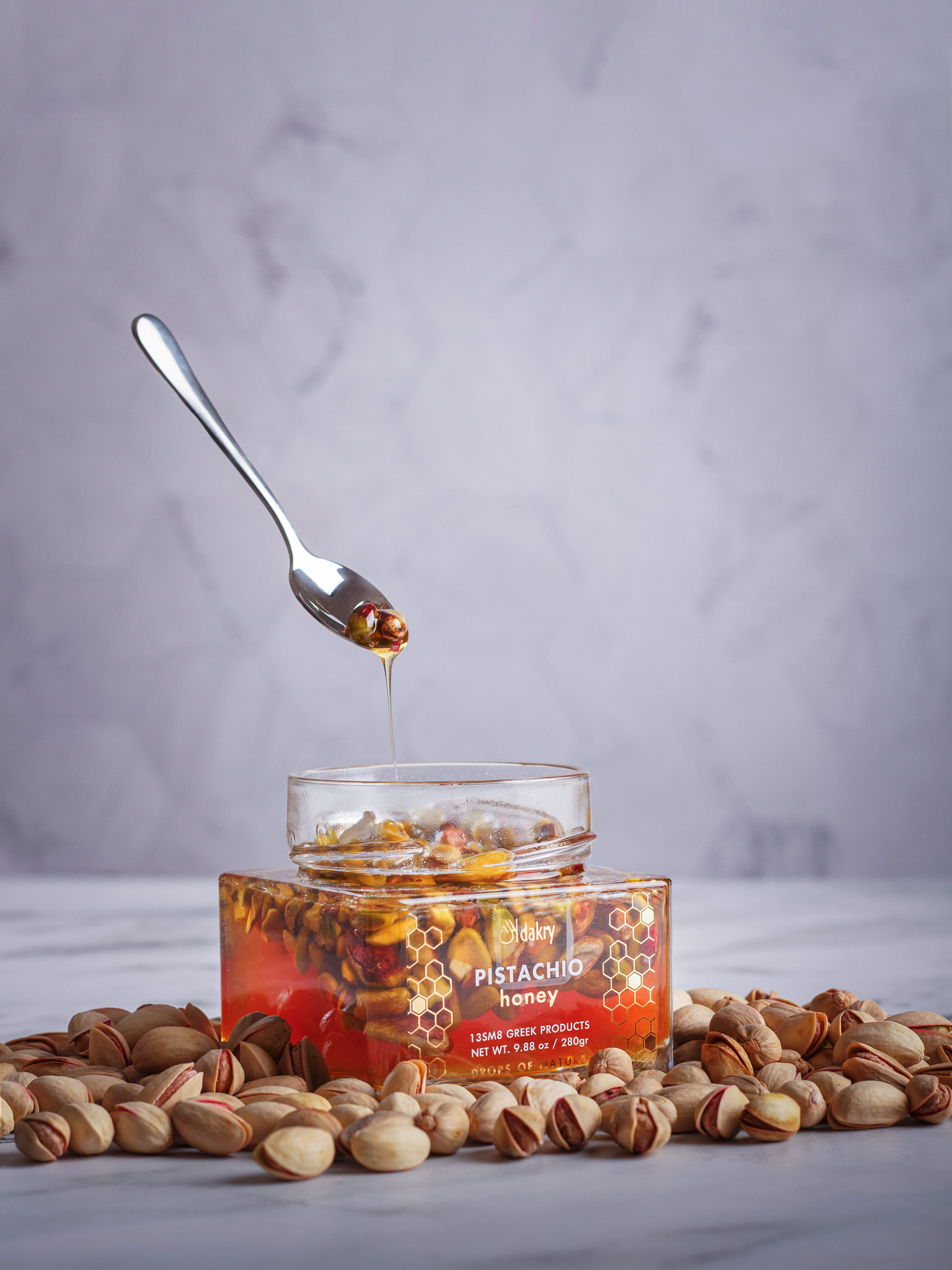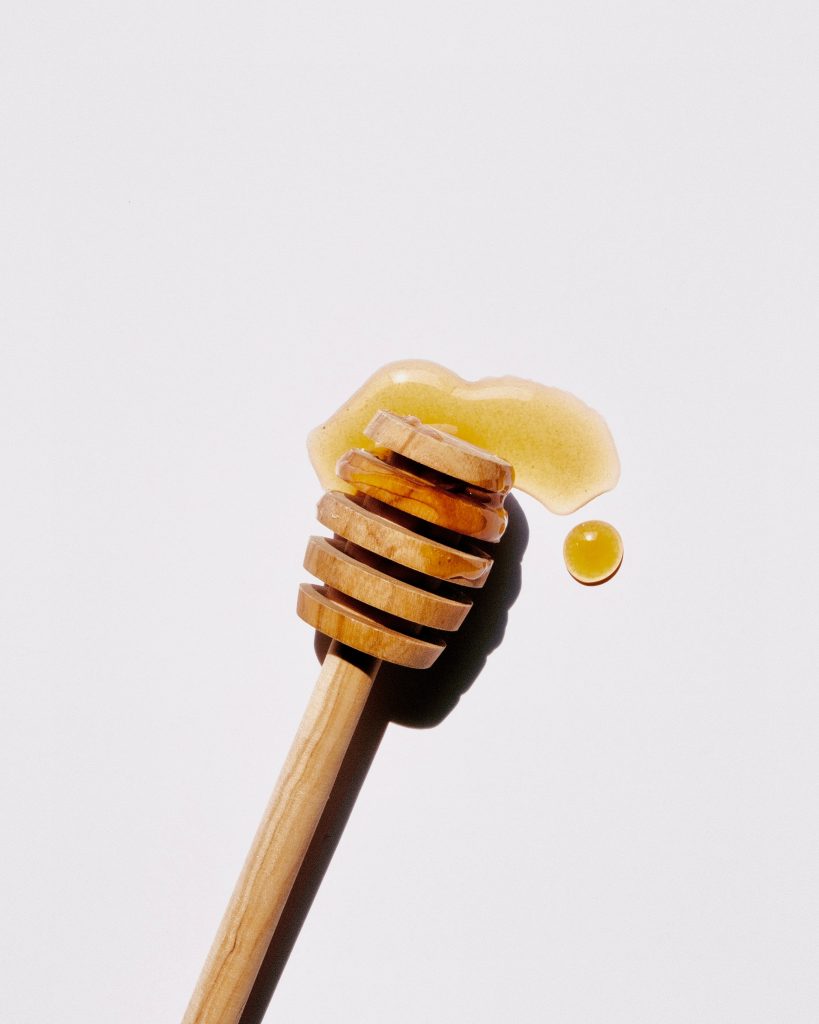Join our Newsletter
Ethnarxou Makariou 149, 17235, Dafni, Greece | info@dakryolive.com

Honey, a divine offering given to us by the gods, was revered by the ancient Greeks. In Greek mythology, the bee and its golden nectar played a prominent role, permeating their customs and traditions. It is said that even the god Apollo himself owed his glamorous charm to the enjoyment of ambrosia and nectar.
Aristaeus, the divine descendant of the glorious Apollo and the enchanting nymph Cyrene, has long been incorporated into the myth of his transcendence to immortality through the divine diet of ambrosia and nectar. In his immortal state, he has emerged as the honorable guardian of honey and the venerable pioneer of beekeeping. Notably, the venerable Hippocrates himself extolled the virtues of honey as a powerful elixir for the cure of many ills, while the illustrious Aristotle claimed its remarkable ability to bestow longevity on mortals. Beyond the vast realm of ancient Greece, other devout cultures, such as the Egyptians and Indians, loved honey as a powerful healing agent. Moreover, the profound significance of honey gracefully permeated Greek traditions, embodying deep connotations of fertility, elation, and overall well-being.

The wisdom of honey was revered in ancient times, but in our modern era, it seems that consumers may not fully understand the complex process, the excellent preservation methods and the remarkable properties of honey. In our quest to uncover the enigmatic secrets of honey, we sought guidance from esteemed experts who possess a wealth of knowledge and deep expertise in this magical realm.
The wisdom of honey was revered in ancient times, but in our modern era, it seems that consumers may not fully understand the complex process, the excellent preservation methods and the remarkable properties of honey. In our quest to uncover the enigmatic secrets of honey, we sought guidance from esteemed experts who possess a wealth of knowledge and deep expertise in this magical realm.
Honey, a natural sweetener, is produced by bees through the collection of plant nectar, plant secretions or secretions from insects that suck on plants.
Bees, through a special process that occurs inside their body and specifically in the prolobe, convert nectar or secretions into honey. They store this honey in their honeycomb cells within their hive. They carefully dehydrate it, reducing its moisture content from 14% to 18%. Once it has matured, they seal it with a layer of wax to ensure its preservation. It is important that the moisture level remains below 20% for most honeys and 23% for heather honey. High moisture levels can result from improper storage or the age of the honey and occasionally from adulteration with water to increase its weight. Excessive moisture can cause the honey to sour.
The main components of this substance are sugars called fructose and glucose, which are obtained from the plants from which the bees have harvested it. In addition, its composition may contain various other elements depending on where it comes from.
The timing of the honey harvest is determined by the natural flowering cycles of the plants and not by the beekeeper’s preferences. Bees collect nectar and pollen from flowers that are currently in bloom. If the flowering period is long, the beekeeper can collect honey from his beehives several times. In Greece, honey can be collected throughout the year by transporting hives to areas with blooming flowers. However, this is not possible in areas with low temperatures or snow.
According to honey producers, honey should not be categorized as good or bad. On the contrary, they suggest using the term ‘pure’, referring to honey produced by beekeepers who respect the natural life cycle of bees and do not interfere with the production process. These beekeepers collect and supply consumers with honey that is purely the result of nature and the bees themselves.
The legislation states that honey must have a high concentration of glucose and fructose, which are considered good sugars. Flower honeys must have more than 60% glucose and fructose, while honeydew honey or a mixture of honeydew and flowers must have more than 45%. On the other hand, the sucrose content in honey should not exceed 5% and in Greek honeys it usually remains below 1% due to good beekeeping practices. Sucrose levels increase when additional bee feeds are used at inappropriate times.
In addition to using chemical analysis, a simple method for determining the purity of honey is to add a spoonful to a glass of water without stirring it. Pure honey will sit at the bottom of the glass without any change, while honey with added syrup will gradually dissolve.
The best method for heating honey is to use a bain marie, but it is important to be careful with the temperature to preserve its nutritional benefits. It is recommended to keep the temperature of the jar of honey below 35-40 degrees Celsius using two containers. Another mild option is to place it on a radiator, but avoid exposure to sunlight as it can damage its beneficial properties.